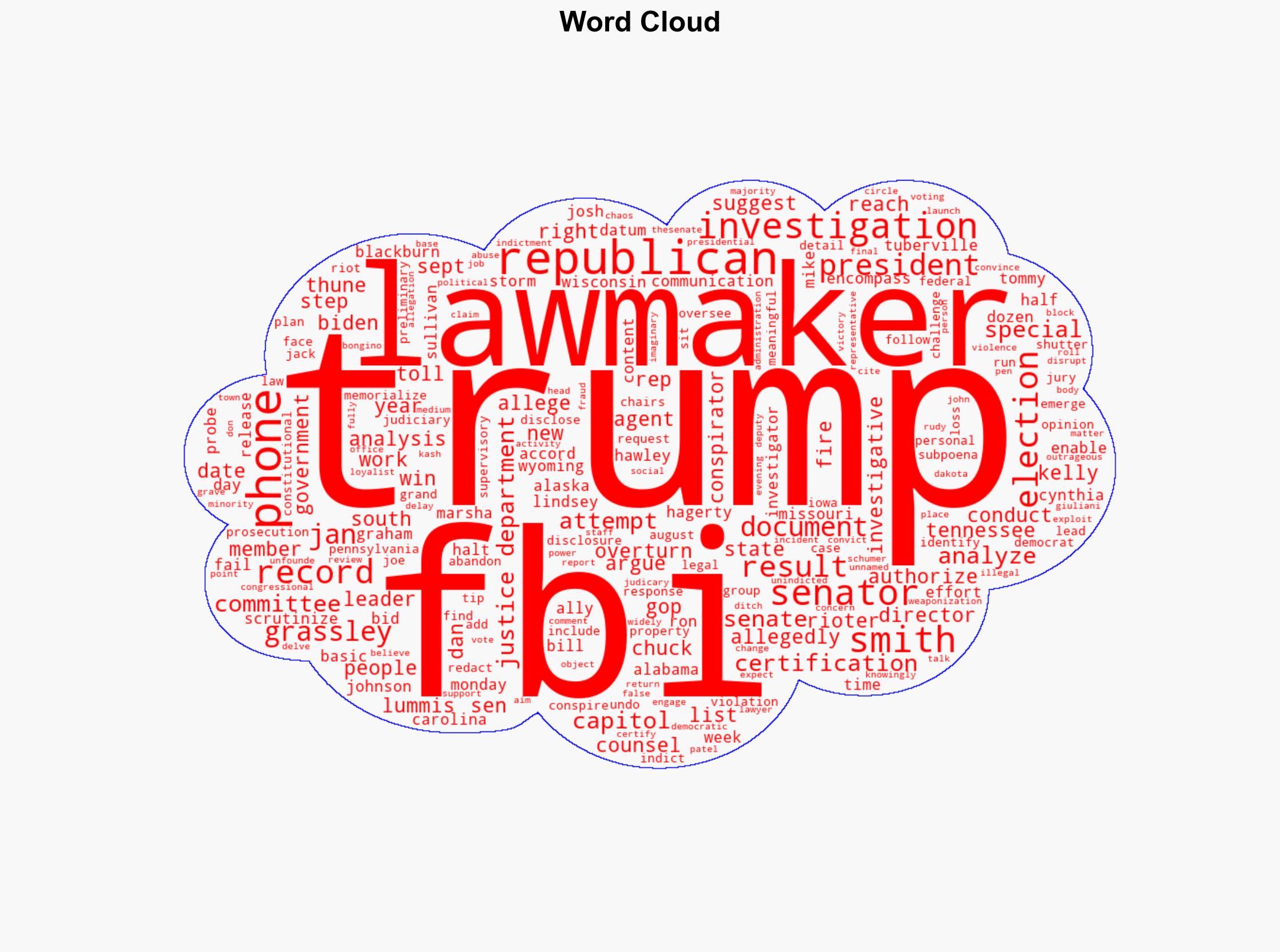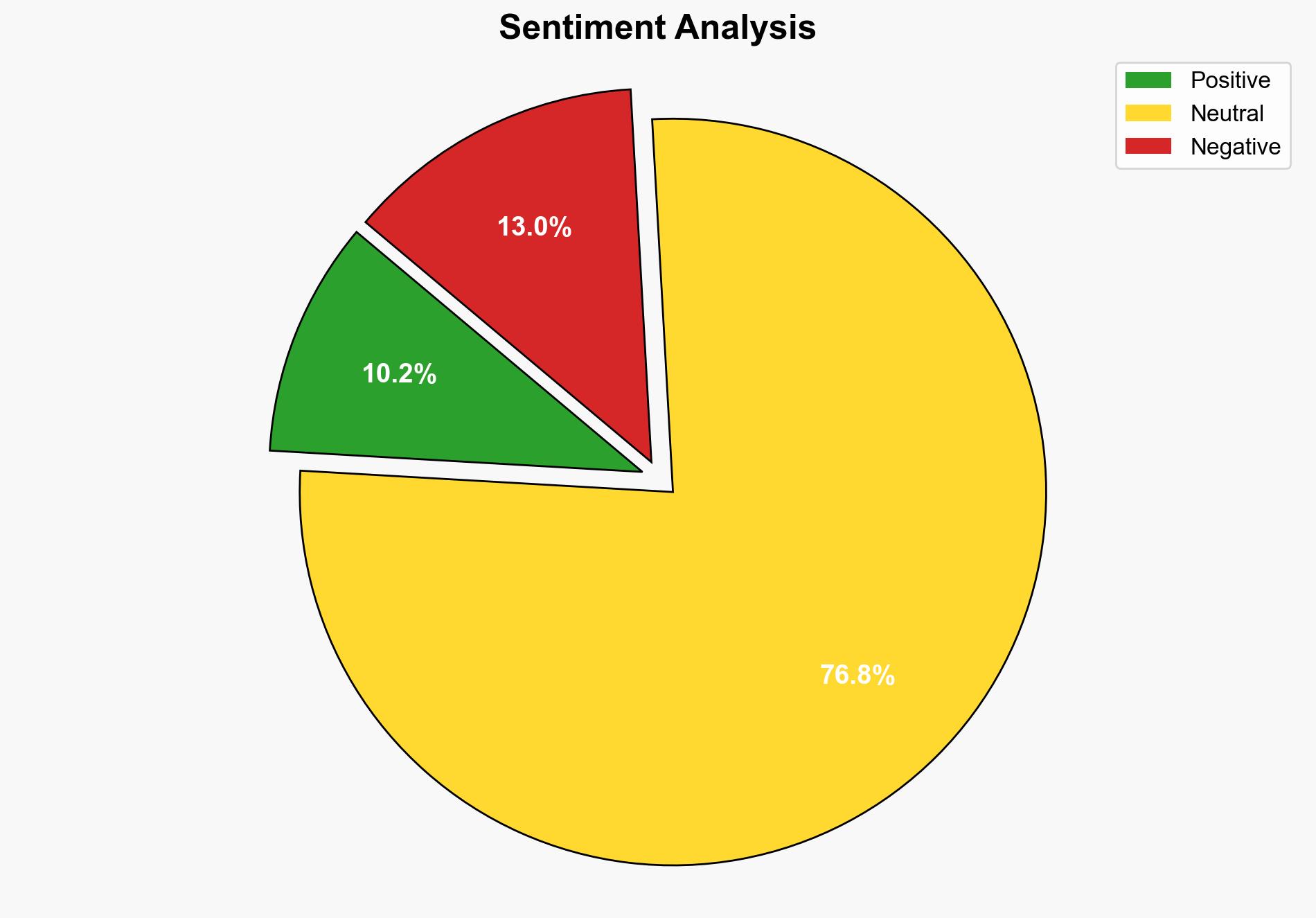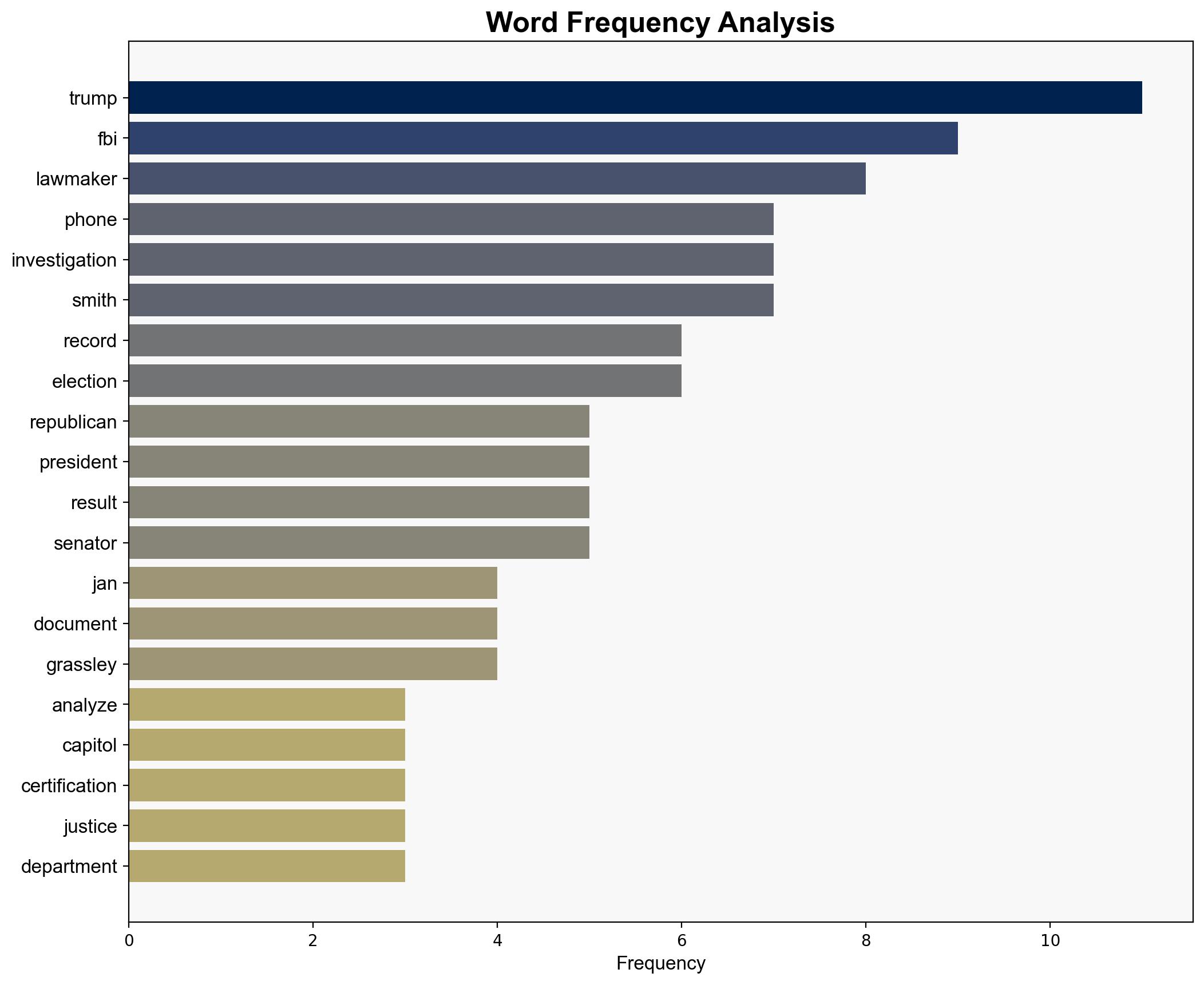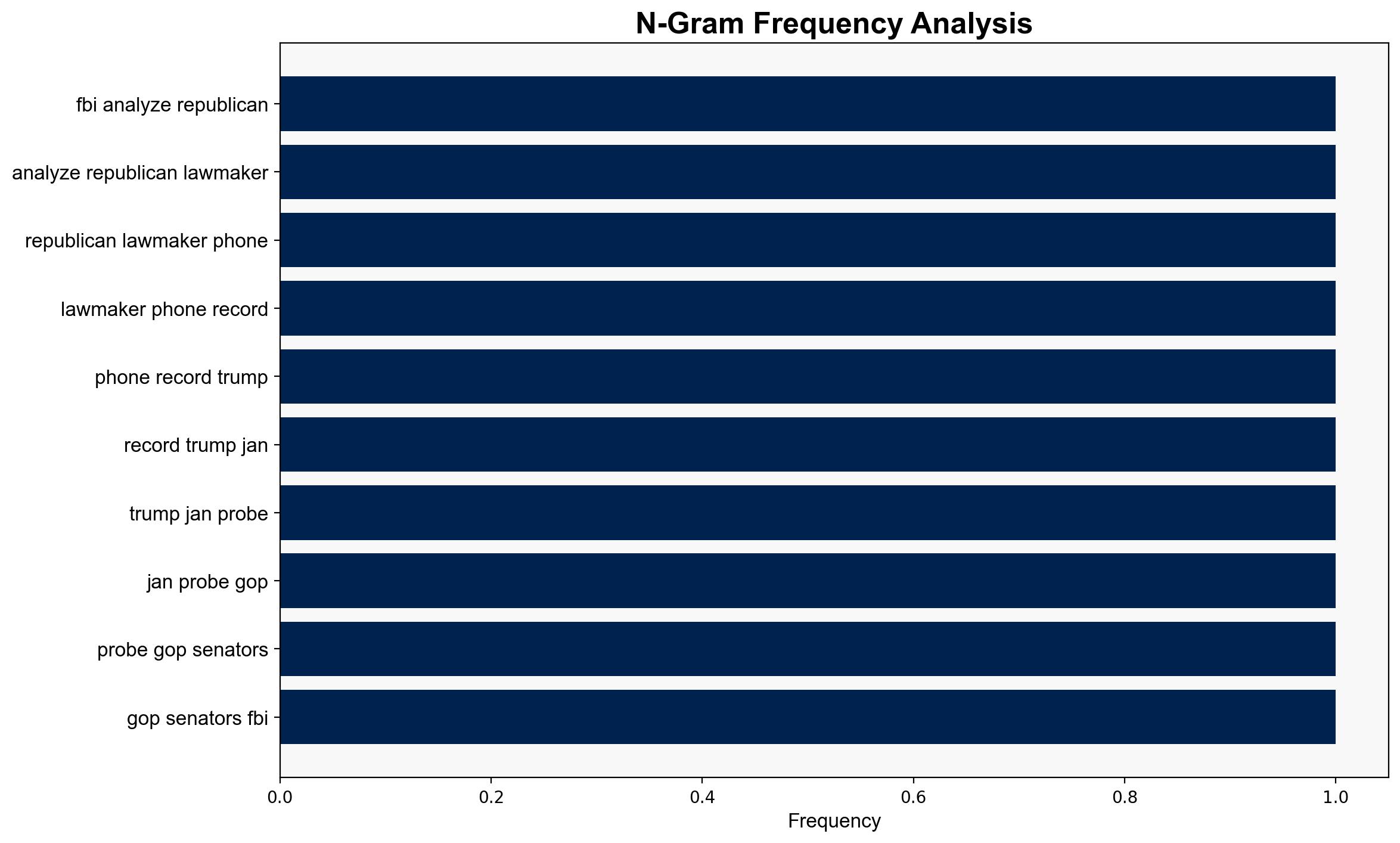FBI analyzed some Republican lawmakers’ phone records as part of Trump Jan 6 probe – CBS News
Published on: 2025-10-07
Intelligence Report: FBI analyzed some Republican lawmakers’ phone records as part of Trump Jan 6 probe – CBS News
1. BLUF (Bottom Line Up Front)
The analysis of Republican lawmakers’ phone records by the FBI, as part of the investigation into the January 6th Capitol riot, suggests a significant legal and political maneuver aimed at uncovering potential coordination or complicity. The most supported hypothesis is that the investigation seeks to establish a direct link between lawmakers and efforts to overturn the election results. Confidence level: Moderate. Recommended action: Monitor developments closely, especially any legal proceedings or political fallout, and prepare for potential shifts in political alliances or public sentiment.
2. Competing Hypotheses
1. **Hypothesis A**: The FBI’s analysis of phone records is primarily focused on identifying direct involvement or coordination by certain lawmakers in efforts to overturn the 2020 election results.
2. **Hypothesis B**: The investigation is a broader effort to gather intelligence on the extent of political support for the Capitol riot, without necessarily implicating lawmakers in criminal activities.
Using the Analysis of Competing Hypotheses (ACH) 2.0, Hypothesis A is better supported due to the specific targeting of lawmakers known for their vocal opposition to the election results and the timing of the communications analyzed. Hypothesis B is less supported as it lacks specificity in targeting and the legal implications of such an investigation.
3. Key Assumptions and Red Flags
– **Assumptions**: It is assumed that the phone records contain actionable intelligence linking lawmakers to the events of January 6th. Another assumption is that the investigation is conducted impartially and without political bias.
– **Red Flags**: Potential bias in the selection of lawmakers whose records were analyzed. The possibility of political motivations influencing the investigation’s scope and direction.
– **Blind Spots**: Lack of transparency regarding the criteria used for selecting which phone records to analyze and the potential for missing context in the communications reviewed.
4. Implications and Strategic Risks
The investigation could lead to significant political repercussions, including shifts in party dynamics and public trust in governmental institutions. There is a risk of increased polarization and potential unrest if the investigation is perceived as politically motivated. Additionally, legal challenges could arise, questioning the scope and legality of the FBI’s actions.
5. Recommendations and Outlook
- Monitor legal proceedings and political discourse for signs of escalation or de-escalation.
- Engage in dialogue with bipartisan stakeholders to mitigate polarization and ensure transparency in the investigation.
- Scenario Projections:
- Best Case: Investigation leads to clear legal outcomes, reinforcing rule of law and public trust.
- Worst Case: Investigation exacerbates political divisions, leading to unrest and institutional distrust.
- Most Likely: Investigation proceeds with mixed reactions, resulting in legal and political challenges.
6. Key Individuals and Entities
Lindsey Graham, Bill Hagerty, Josh Hawley, Dan Sullivan, Tommy Tuberville, Ron Johnson, Cynthia Lummis, Marsha Blackburn, Mike Kelly, Chuck Grassley, John Thune, Chuck Schumer, Rudy Giuliani.
7. Thematic Tags
national security threats, cybersecurity, counter-terrorism, regional focus





